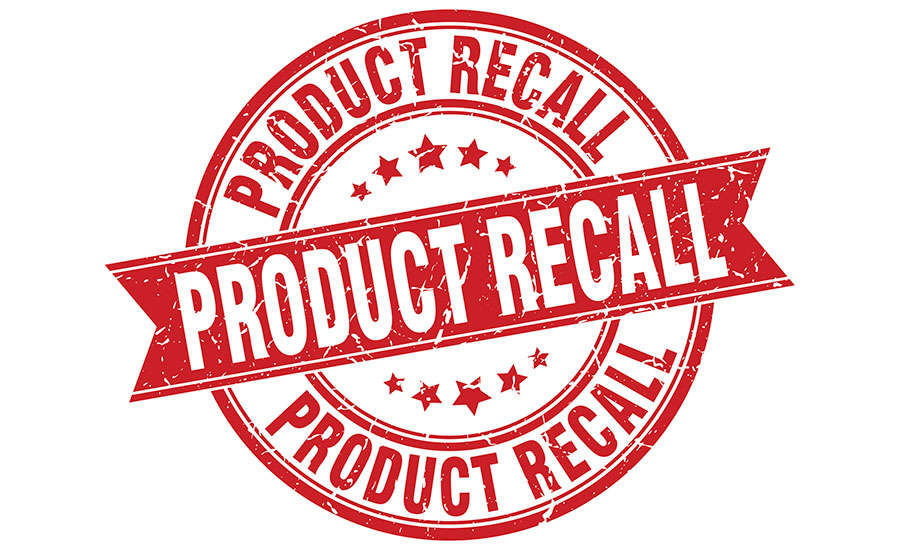
When it comes to recalls in your facility there are some things you can do to prevent them from happening. However, the truth is if you are making or selling a consumable product you will likely go through many recalls throughout the life of your company. This is completely normal in all other industries. Most of the time a recall isn’t even associated with your facility at all.
The key is being ready for a recall and knowing what to do when they happen.
Proper Labeling
When it comes to labeling this is one of the many ways a cannabis product recall can happen. Making sure you are in compliance with regulations is very important. Getting it wrong can cost you sometimes a great deal of money, due to either recalls, reprinting, or in fines. Following all local, state and federal guidelines is the best way to prevent issues. We always recommend having a label review conducted by a compliance expert before printing. Also, be aware of claims on your labels to prevent the FDA and FTC from sending warning letters, cease and desist notices, or fines from the federal side. Many regulations can cross over! Just because you are compliant with FDA guidelines doesn’t necessarily mean you are compliant with local or state regulations.
A good example we have found is the use of “supplement facts” on the label of CBD products. According to some, the FDA isn’t regulating or sending warning letters for using “supplement facts” on your labels. Be careful because many state health departments have put out guidance saying they will take action for using this phrase. We usually err on the side of caution with this and many clients are using “Product Facts” for now. You need to follow all labeling regulations and be aware that each one is different. All regulatory bodies have the authority to require a recall if they decide.
Proper Batch Number System In Place
Having a good batch number system in place is very important to know where all ingredients in the product came from and where all the end products have ended up. Many believe that Metrc is a compliant batch number system for FDA or cGMP Certification, but it actually isn’t. A proper batch number tracking and trace system includes everything that is put into the product along with where everything has been, all in one easy to find location.
This would include all pesticides, fertilizers, and water testing for cultivations. It would include all ingredients put in concentrates, solvents, terpenes, and all ingredients put into edibles as well. This also includes all packaging information as well. Are all of the equipment and packaging in your facility food grade plastics, and UL listed? Track and trace systems go deeper than just harvest dates and transfers. It includes all equipment, ingredients, solvents, processes, and where it all went once sold.
The idea is to be able to easily conduct a recall using this information and easily identify where cross contamination could have taken place at any point in the process. This is a requirement per FDA and cGMP Certification requirements. There are many different systems on the market that you can be implement in a cannabis facility or you can keep track manually in Excel. It just depends on what is easier for you and your facility.
Approved Supplier Program In Place
This is a document/SOP many require per FDA and cGMP Certification standards, and for good reason. Everything that you buy for use in your facility or in your product needs to go through some kind of vetting process. You need to be sure that all ingredients are food grade and come from a facility that is safe. You certainly don’t want to be buying products that you don’t know what is in them or where they came from. This will help prove in a recall situation that you were being responsible in sourcing ingredients and equipment. In many cases the reason for a recall happens further up the supply chain than your facility. This is still a good way for you to prove that you have vetted sources, so an investigation can go more quickly and smoothly.
CAPA Plan and Recall Plan In Place
A CAPA (Corrective Action Preventative Action) and a Recall plan are plans that you follow in case a recall situation happens. These plans are not only required by the FDA and cGMP Certification companies, but many state and local regulatory bodies as well. A CAPA plan explains what employees are supposed to do in case something goes wrong during production. While also putting in place preventive actions for issues that could very likely happen if not prevented. Then documenting whenever something weird happens and how it was corrected.
A recall plan is in case a recall happens. It explains in detail what your employees should do in case something is found that might require a voluntary recall.
We always hope these things don’t happen, but they will. So prepare and act efficiently when it does.

Kim Stuck is the founder and CEO of Allay Consulting, a compliance strategy and services provider serving the hemp, cannabis, and psychedelic industries nationwide. She brings a regulator’s keen eye and wide-reaching knowledge on evolving compliance and safety mandates to support businesses in tightly regulated industries. Previously, Ms. Stuck held a pioneering role as the nation’s first cannabis and hemp specialist for a major metropolitan public health authority. During her tenure with the City of Denver, home to hundreds of cannabis businesses, she worked as an investigator covering cultivation, manufacturing and retail. Her duties included facility inspections; conducting investigations into improper pesticide use and worker safety; creating regulations; instituting recalls; and public outreach. Ms. Stuck holds numerous accreditations, such as certified quality auditor (CQA) and certified professional of food safety (CP-FS), among others. In addition to serving on several industry advisory boards, she has been a member of ASTM International’s cannabis standards committee since its 2017 inception.
